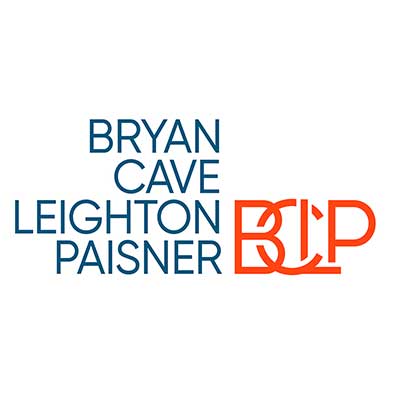
United States Teams 2015
Supported by the Association of Corporate Counsel

For 28 years, The Legal 500 has been analysing the capabilities of law firms across the world. The GC Powerlist is the latest publication from The Legal 500, turning its attention to the in-house function, and recognising those corporate counsel who are driving the legal business forward. The latest edition is the GC Powerlist: US Teams, which identifies an array of the most influential and innovative in-house teams working in the United States.
Our commitment to the in-house market is expanding, not only through the publication of the GC Powerlist Series, but also with our wide range of events, seminars, roundtables and legal updates. We have also launched GC Magazine, a quarterly title (free of charge to in-house counsel) that looks at the business of being an in-house lawyer, from a strategic, commercial and theoretical standpoint. We understand that the biggest issues facing in-house counsel today are, in fact, rarely legal issues. Our editor-in-chief, Catherine McGregor is now based in the United States and is travelling the length and breadth of the country to meet, interview, analyse and finally share the very best that the in-house market has to offer.
If you have feedback on the GC Powerlist: United States Teams, or wish to nominate other in-house individuals (either in US or global), please do get in touch at [email protected].
We hope that this listing will stimulate debate around the role of the in-house lawyer and help corporate counsel with possible improvements and efficiencies in running their departments.
David Burgess
Publishing Director

Known as the ‘Pacto por México’, the package of structural reforms adopted by the current administration upon its election in 2012 has already helped bring more investment to Mexico. While it remains necessary to fully employ the national budget so as to create new jobs and further grow employment, major structural measures have already been legislated by Enrique Peña Nieto’s government and these will effect competition, energy, finance, labor, infrastructure, telecommunications, amparo law (a constitutional appeal), private data protection, public private partnerships, anticorruption, education, transparency and tax matters. Significantly, implementation has already begun. These structural reforms have been rolled out at a time when Mexico –like other jurisdictions- is enduring a notable reduction in oil prices, but this has had only a limited impact on global oil companies’ interest in Mexico’s offshore hydrocarbons potential, since the major oil-and-gas players are aware that such projects generally require years to develop and can provide returns for decades. According to the OECD, full implementation of the reform package in the short term is crucial to the country’s reaping the benefits that will accrue from a strong and sustainable recovery, and could add as much as one percentage point to the annual per capita growth trend of Mexico’s GDP.
Each of the reforms noted above, address the key issues and challenges in their respective sectors. The Mexican economy currently ranks as the world’s 11th largest and the country is also the fourth largest exporter of automobiles and manufactures the vast majority of flat screen televisions sold in the United States. In fact, Mexico exports more manufactured products than the rest of Latin America combined. Many US law firms have implemented or considered the hire of individuals or groups with significant business activity, opening offices in Mexico from where they can better serve their clients’ requirements or deliver services at a lower price. This scenario presents a unique opportunity not only to grow the services local firms provide to existing clients but also to compete for and acquire new clients.
On the other hand, the role of the in-house lawyer is crucially important since they manage the legal risks associated with the business and legal issues involved in all decisions by management. Moreover, in-house lawyers have to respond to increasing pressure on legal costs, responding proactively with initiatives for cost reduction and identifying appropriate benchmarks to permit the measuring of efficiency. When making the transition from private practice to an in-house role, most lawyers move from a specialist background to a more generalist role with responsibility for areas in which they have markedly less experience. This potentially opens huge areas of opportunity for them, since in-house lawyers who demonstrate the ability to make commercial decisions find it easy to connect with the (internal) business teams and will further a company’s ability to make sound strategic choices based on analysis that combines both legal and commercial factors.
In this regard, relationships between in-house lawyers and external lawyers are becoming increasingly important. The successful appointment of preferred legal advisors and the development of a close working relationship with a law firm can be a significant opportunity for in-house legal teams and can help save both time and money.
Basham, Ringe y Correa is one of the largest and most prestigious full-service corporate law firms in Latin America. Established in Mexico in 1912, Basham draws upon a century of experience in assisting its clients to conduct business throughout Mexico. The firm’s clients include prominent international corporations (many of them on the Fortune 500 list), medium-sized companies, financial institutions and individuals.
Our large group of lawyers and support staff are committed to maintain the highest professional and ethical standards. The firm currently has approximately 130 lawyers, plus 47 paralegals, four engineers and seven translators. Constantly exposed to the international legal system, many of our lawyers and other professionals have completed post-graduate studies at foreign universities and have worked at companies and law firms from abroad. The firm’s members speak English fluently, and in some cases French and German.
The specialization and development of each department, coordination and support between the different areas, and in-depth knowledge of markets and economic trends, provide our clients with innovative complete and timely solutions. It is because of these qualities and values, we believe, that our clients have continued to entrust their legal affairs to us for many years, some for many decades.
The firm has regulatory and practical expertise in all areas of a modern legal practice and advises clients on mergers and acquisitions, joint ventures, commercial contracts, project financing, domestic and international tax planning, in-bond manufacturing, antitrust, banking, bankruptcy, trusts, insurance, business organizations, international trade, NAFTA and WTO matters, anti-dumping, intellectual property (covering patents, trademarks, models, designs, copyrights, domain names, licensing, franchising and unfair competition), entertainment, administrative law, government relations, government regulations, immigration, labor, employment, employee benefits and human resources planning, environmental law, energy, telecommunications, health, transportation, aviation, railroads, maritime, tourism, mining, consumer protection litigation, arbitration, criminal law and inheritance, real estate and agrarian matters. We also have specialized litigation departments for civil, commercial, criminal, labor, tax and administrative areas as well as commercial arbitration and constitutional proceedings (juicio de amparo).
The firm has been actively involved in the development and globalization of markets, working with clients to formulate creative solutions that meet their needs. The firm represents domestic and foreign clients in the private and public sectors and Basham, Ringe y Correa prides itself on working with clients that have developed important projects in Mexico.
The firm is able to provide complete and accurate legal translations of laws and documents to ensure that our clients have a full understanding of their operations.

GC Summit Colombia 2026 brought together senior in-house counsel, private practice lawyers and legal industry professionals for an afternoon of discussion focused on the regulatory, commercial and practical challenges shaping the legal landscape across Latin America. Beginning with registration and a light lunch, the programme set a collaborative tone, allowing attendees to connect ahead of a series of substantive panel sessions.
Following opening remarks, the first panel, sponsored by Holland & Knight, examined antitrust compliance in Colombia and its growing importance for companies operating in an increasingly scrutinised and fast-moving environment. The discussion highlighted how competition law has evolved into a strategic business concern rather than a purely legal one. Panellists shared in-house perspectives on designing and updating effective compliance programmes, managing competition risks in dynamic markets, and responding to investigations and information requests from authorities. Particular attention was given to aligning legal strategy with business objectives and to the expanding role of technology, including artificial intelligence, in supporting compliance, risk management and decision-making. Drawing on practical experience, the session offered grounded insights into emerging trends and best practices for navigating antitrust compliance today.
The second panel, sponsored by Posse Herrera Ruiz, shifted the focus to labour and employment law and how organisations can prepare for 2026 without burnout. Against a backdrop of economic uncertainty, regulatory change and shifting workforce expectations, speakers explored how employers can balance legal risk with operational resilience. The discussion covered workforce restructuring, labour costs, flexibility, union relations and the increasing relevance of wellbeing and ESG considerations. Rather than abstract forecasts, the panel concentrated on realistic strategies to anticipate disruption, respond to change and make informed decisions, providing attendees with a pragmatic framework for facing the coming years with clarity and confidence.
After a short coffee break, attention turned to regional investment trends with a session sponsored by Pellerano & Herrera on the Dominican Republic. The discussion examined the regulatory developments, sector-specific opportunities, and legal considerations influencing both foreign and domestic investment. Speakers reflected on recent reforms and market dynamics, as well as the practical challenges faced by companies operating in or entering the jurisdiction. The panel offered a forward-looking view on why the Dominican Republic continues to attract international interest and what businesses should be mindful of as the legal landscape evolves.
This was followed by a fireside chat sponsored by ECIJA GPA focusing on Ecuador’s energy sector. The conversation addressed the ongoing crisis and its implications for investors and businesses, providing insight into the current legal and regulatory framework and the key risks involved. Alongside these challenges, the session also explored emerging opportunities within the sector, offering a balanced perspective on how stakeholders can protect investments while identifying areas for potential growth in a difficult environment.
The Congress continued with a panel sponsored by Gamboa, García, Roldán & Co. on artificial intelligence in Colombia. The discussion explored the developing regulatory oversight of AI, including draft legislation in Congress and public policies introduced by the national government. Speakers examined the legal and practical risks associated with implementing AI tools, such as questions of liability, algorithmic transparency and accountability, as well as the broader implications for the future of legal practice. The session underscored the need for legal teams to stay engaged with technological change while maintaining robust governance frameworks.
The day concluded with an interactive session sponsored by Legal 500 on the day-to-day practice of an in-house lawyer. This final panel offered an honest look at the realities of working within a business, addressing both legal and non-legal challenges. Topics included the importance of soft skills, managing and developing talent, working with Gen Z, and the role of rising stars within legal teams. With questions encouraged throughout, the discussion resonated strongly with attendees, closing the event on a practical and reflective note that captured the evolving nature of the in-house role.
The event provided a comprehensive and regionally informed overview of the issues currently shaping legal practice, combining strategic insight with practical guidance across competition, labour, investment, energy, technology and in-house management.
It concluded with an excellent selection of canapés and drinks, enjoyed in a lively room filled with engaged and enthusiastic attendees.